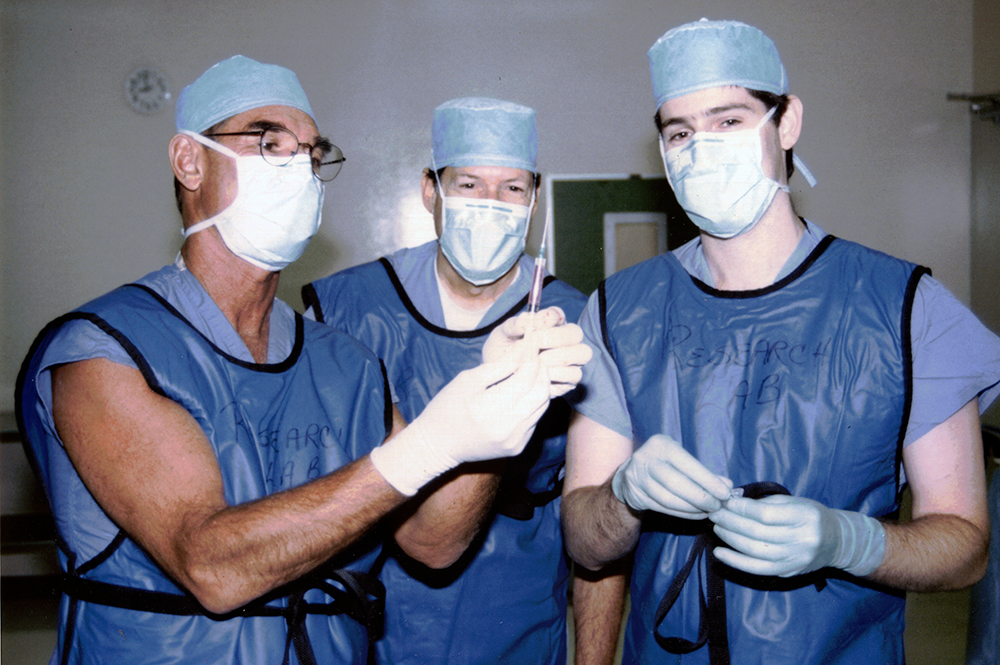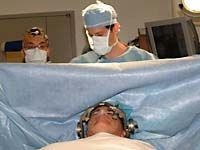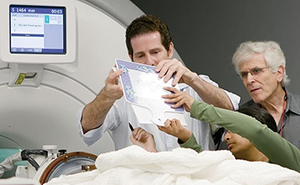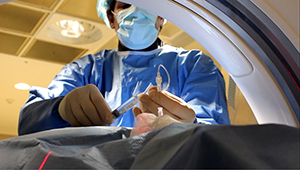
Dr. Michael Kaplitt always knew he wanted to be both a doctor and a research scientist. “Ever since I was very young, I've had a curiosity about what causes problems in the human body, and how one could address it,” he says. His father, a pioneering heart surgeon, provided the inspiration for him to enter medicine; today, as the head of a molecular neurosurgery lab as well as an internationally known neurosurgeon specializing in movement disorders, Dr. Kaplitt has realized his dream of combining research with surgery.
Treating patients and doing research are “both equally important parts of my personality,” Dr. Kaplitt says. “It’s exciting how innovation and technology can change how you practice neurosurgery so you can take questions from the clinic back to your laboratory and vice versa.”

2003: Dr. Kapliltt performs the world's first gene therapy for Parkinson's disease
Dr. Kaplitt has long been a pioneer in gene therapy, developing the basic techniques that are now used in most neuroscience labs around the world. (In 2003 he performed the first human gene therapy operation for Parkinson’s disease.) He also spent years leading clinical trials establishing the safety and effectiveness of focused ultrasound (FUS) for essential tremor. That work, which led to FDA approval of FUS for essential tremor in 2016, has been especially gratifying for him since it makes such an immediate improvement in quality of life.
After patients are treated with focused ultrasound, “their tremors literally stop instantaneously,” he says. "They go home that evening and they can use a spoon to eat soup. They can drink from a cup. It’s life-changing work.” To be among the first to bring these cutting-edge technologies to patients — and in some instances, actually develop new treatment approaches — is “incredibly satisfying,” he says. (Hear from some patients who have had successful treatment with focused ultrasound.)

2017: Dr. Michael Kaplitt pioneers high-intensity focused ultrasound to treat essential tremor
Every day in his practice, Dr. Kaplitt combines his surgical skill and his advanced training in state-of-the-art stereotactic techniques with the knowledge gained from his research to treat patients with degenerative brain disorders. “We treat diseases including Parkinson's disease, essential tremor, complex pain, and other things that prevent patients from functioning normally in their daily lives,” he says.
To illustrate the speed of innovation in the field, Dr. Kaplitt recalls a firefighter who had a tremor that he treated with deep-brain stimulation early in his Weill Cornell tenure. The technique, which was groundbreaking at the time, involved surgically implanting an electrode in the patient’s brain to stop the tremors. A generation later, Dr. Kaplitt treated the fireman’s son for the same condition — this time with a completely non-invasive ultrasound technique.
“We treat diseases that prevent patients from functioning normally in their daily lives."

2020: Dr. Kaplitt initiates a new gene therapy clinical trial for an inherited form of Parkinson's disease
In addition to his clinical practice, Dr. Kaplitt — now Executive Vice Chair of the department — continues to work in his Molecular Neurosurgery Research Laboratory on trials to develop gene therapies for Parkinson’s, Alzheimer’s, complex pain, and other conditions. “The most rewarding things are how relatively quickly you can transform people's lives with the technologies that we bring to bear,” he says.